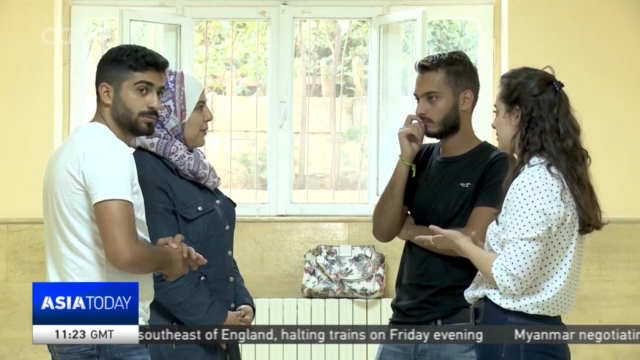
19:41, 10-Aug-2019
Syria Crisis: New organization seeks to prevent suicides amid war
Updated
23:03, 10-Aug-2019

Years of conflict in Syria have caused a rise in mental health problems and increase in the number of suicides. This has led the country to establish its first suicide hotline and support group. But CGTN's Alaa Ebrahim reports that getting the word out isn't easy, as suicide is still considered a religious and social taboo.
The narrow alleyways of Damascus are filled with stories of hardship that years of war have placed on the city. And with no one to talk to, more people here are contemplating suicide. Earlier this year, Michael – whose real name has been withheld – tried to kill himself after losing his entire family to a rocket attack in 2018.
MICHAEL ATTEMPTED SUICIDE "Many friends of mine have turned to drugs to deal with bad situations. Friends of mine have been killed, fled, are fighting in the army or have become homeless. I lost my family, my house, and then I couldn't travel abroad and was called to serve in the army. I saw no way out so I tried to hang myself."
ALAA EBRAHIM DAMASCUS, SYRIA "Since the beginning of 2019, more than 59 Syrian suicides have been reported, but experts believe the numbers are much higher. Deteriorating levels of mental health and the stigma of suicide drive many family members to list a suicide death as something else. Discussions of mental health are still considered taboo in Syria, a fact that denies millions even the most basic care."
Here in their makeshift office, the Syrian Organization for Suicide Prevention is attempting to get their new initiative off the ground. Part of this is setting up a hotline to help prospective suicide victims.
HANA' NAYAZI, EXPERT IN CLINICAL PSYCHOLOGY SYRIAN ORGANIZATION FOR SUICIDE PREVENTION "Cases of post-traumatic stress disorder and war-related depression are very high, but there are few who are able to provide psychiatric care. Such care isn't common here, nor is there empathy for those suffering. You can get an idea for this based on the victims being blamed on social media posts about suicide incidents. This is why we emphasize privacy and safety for those contacting us."
While suicide and thoughts of suicide are considered an extreme result of psychological disorders, it is hard to pinpoint the warning signs. Difficulties in accessing basic mental health care and avoiding dangerous addictive medications are to blame.
The new organization faces difficult odds. There is a huge shortage in the number of psychologists and psychotherapists, with just one for every fifty thousand Syrians. But the fact that many are still refusing to seek help tends to be the least pressing matter to attend to, after 9 years of conflict.
Alaa Ebrahim, CGTN, Damascus.
SITEMAP
Copyright © 2018 CGTN. Beijing ICP prepared NO.16065310-3
Copyright © 2018 CGTN. Beijing ICP prepared NO.16065310-3